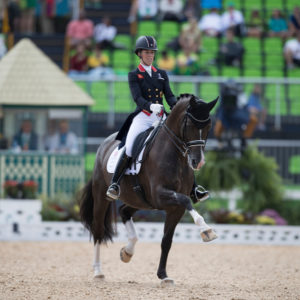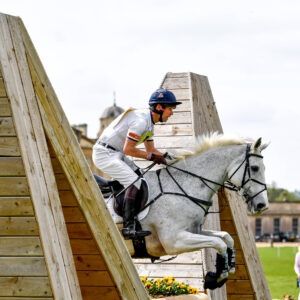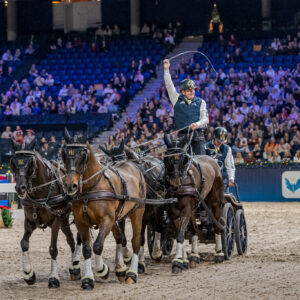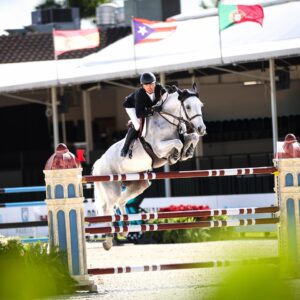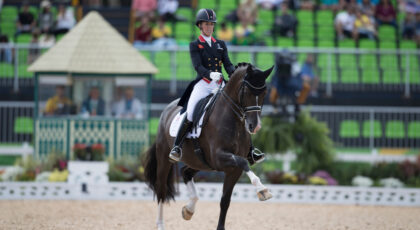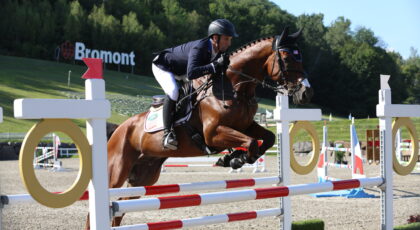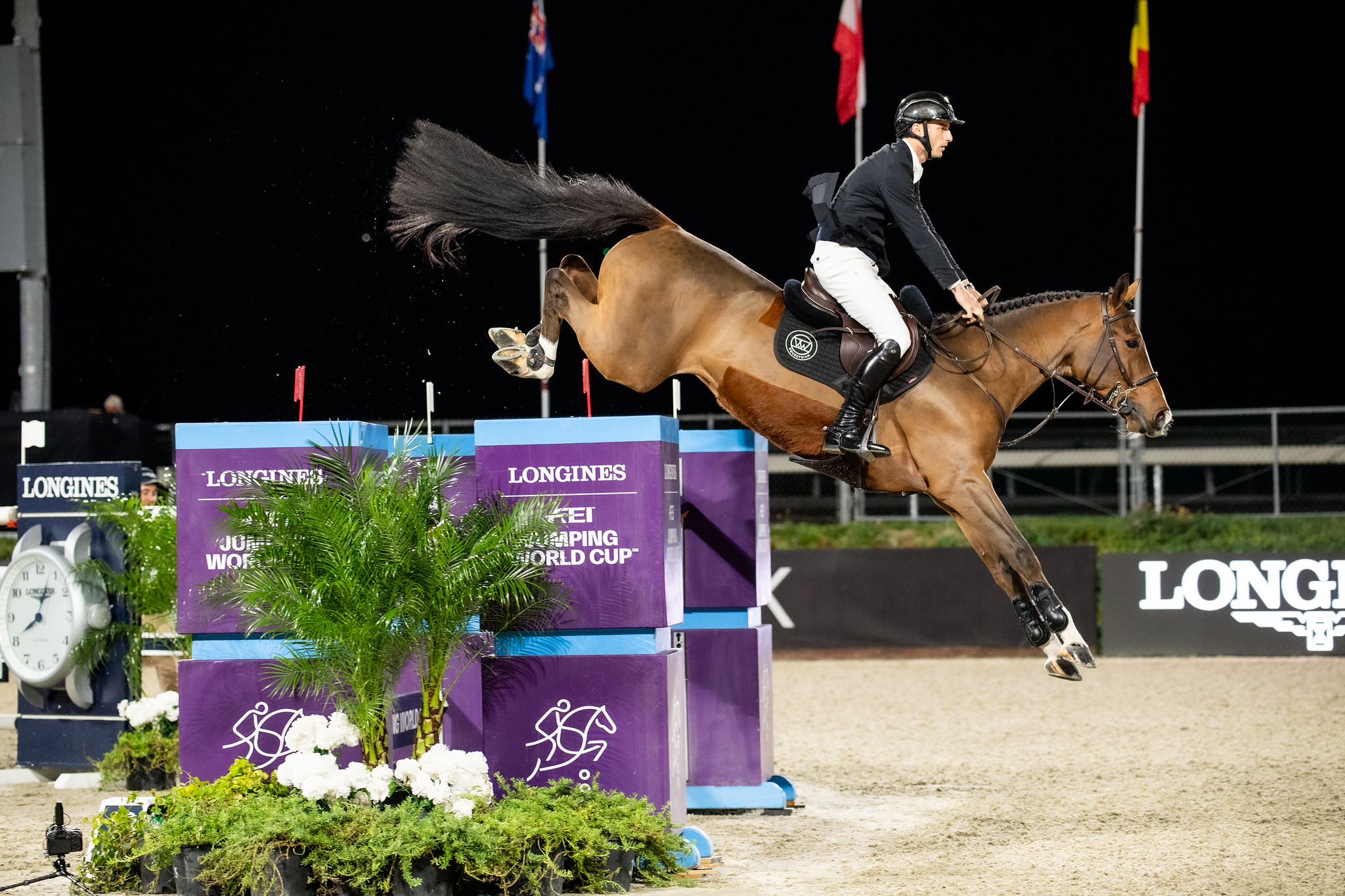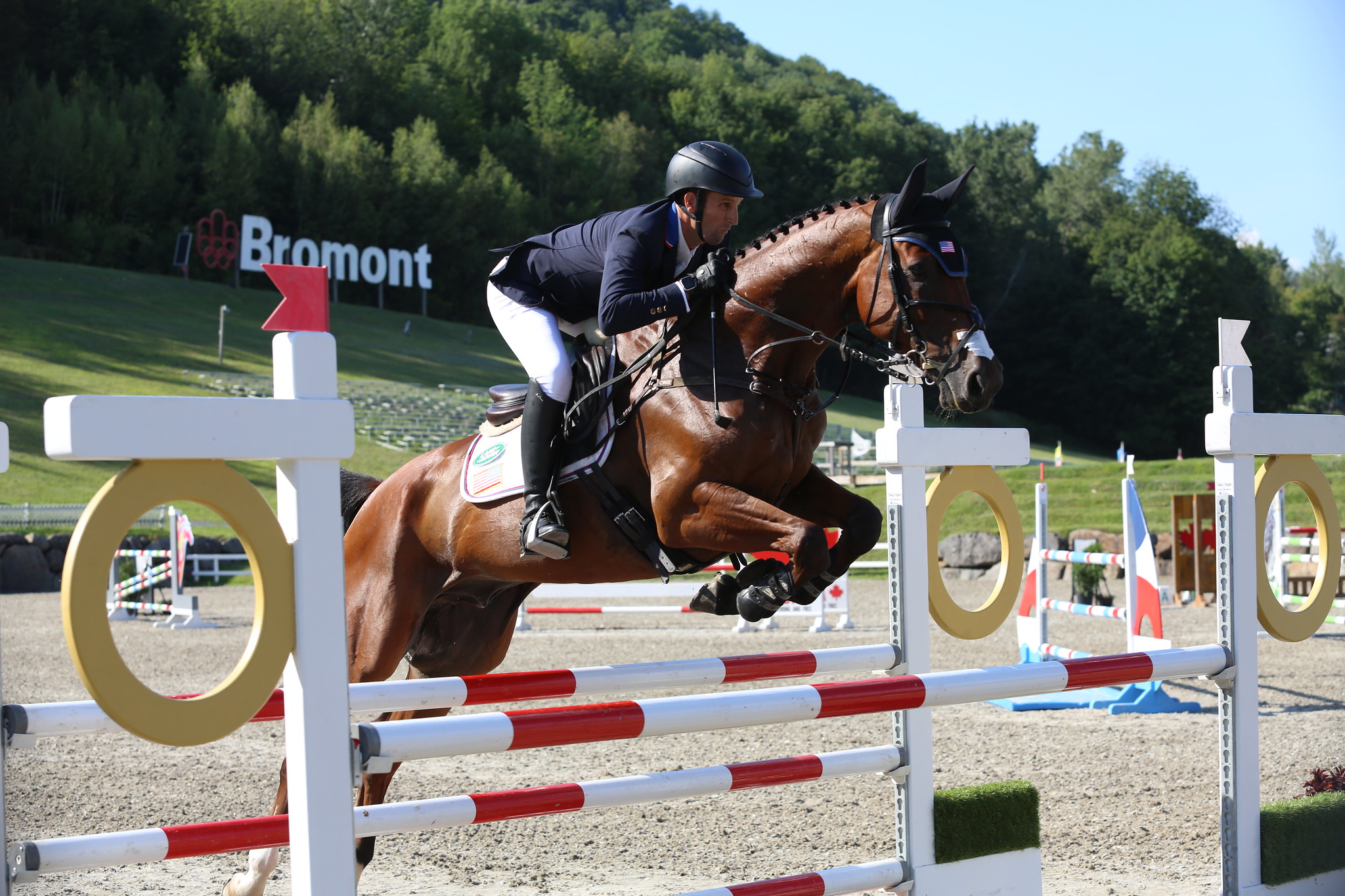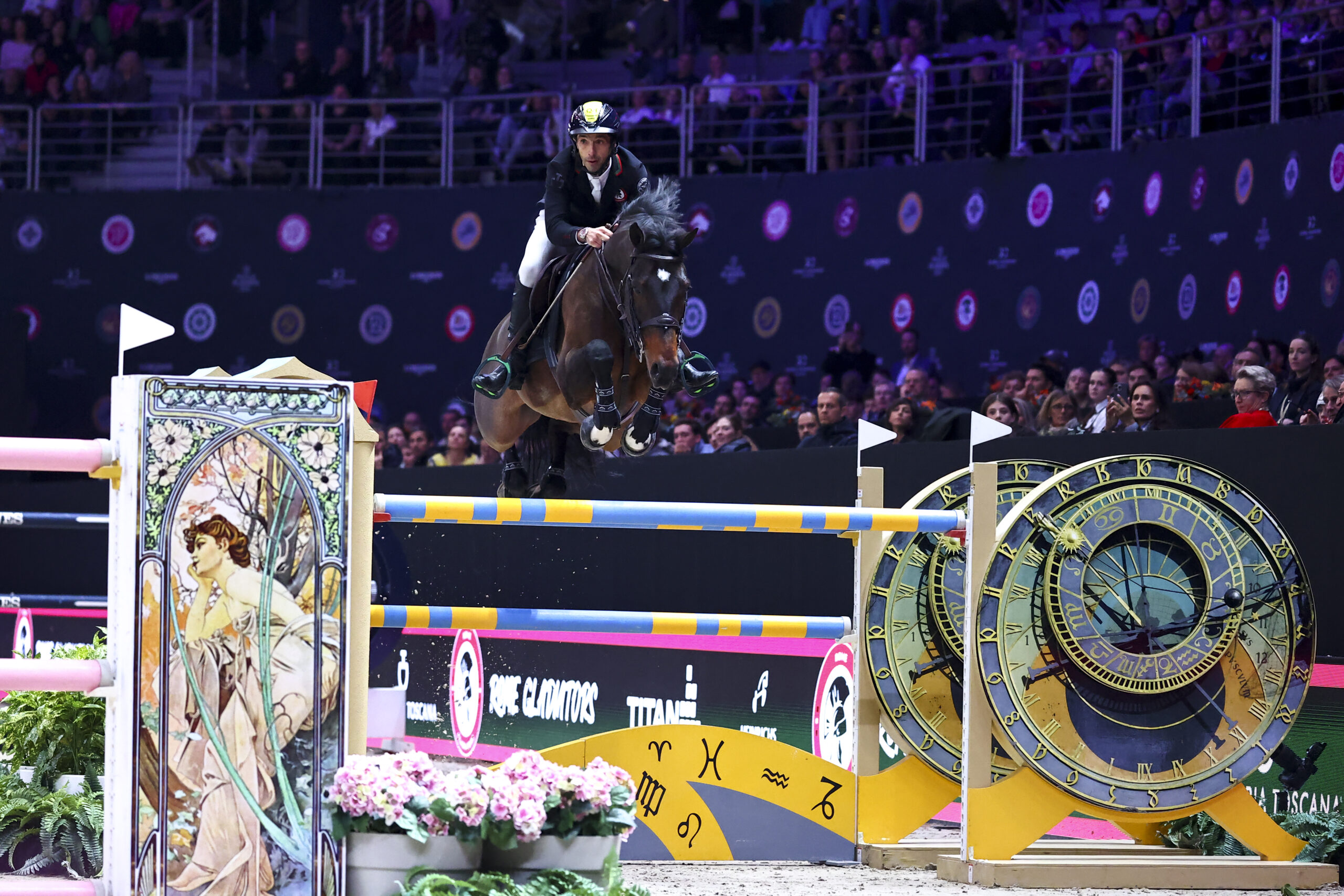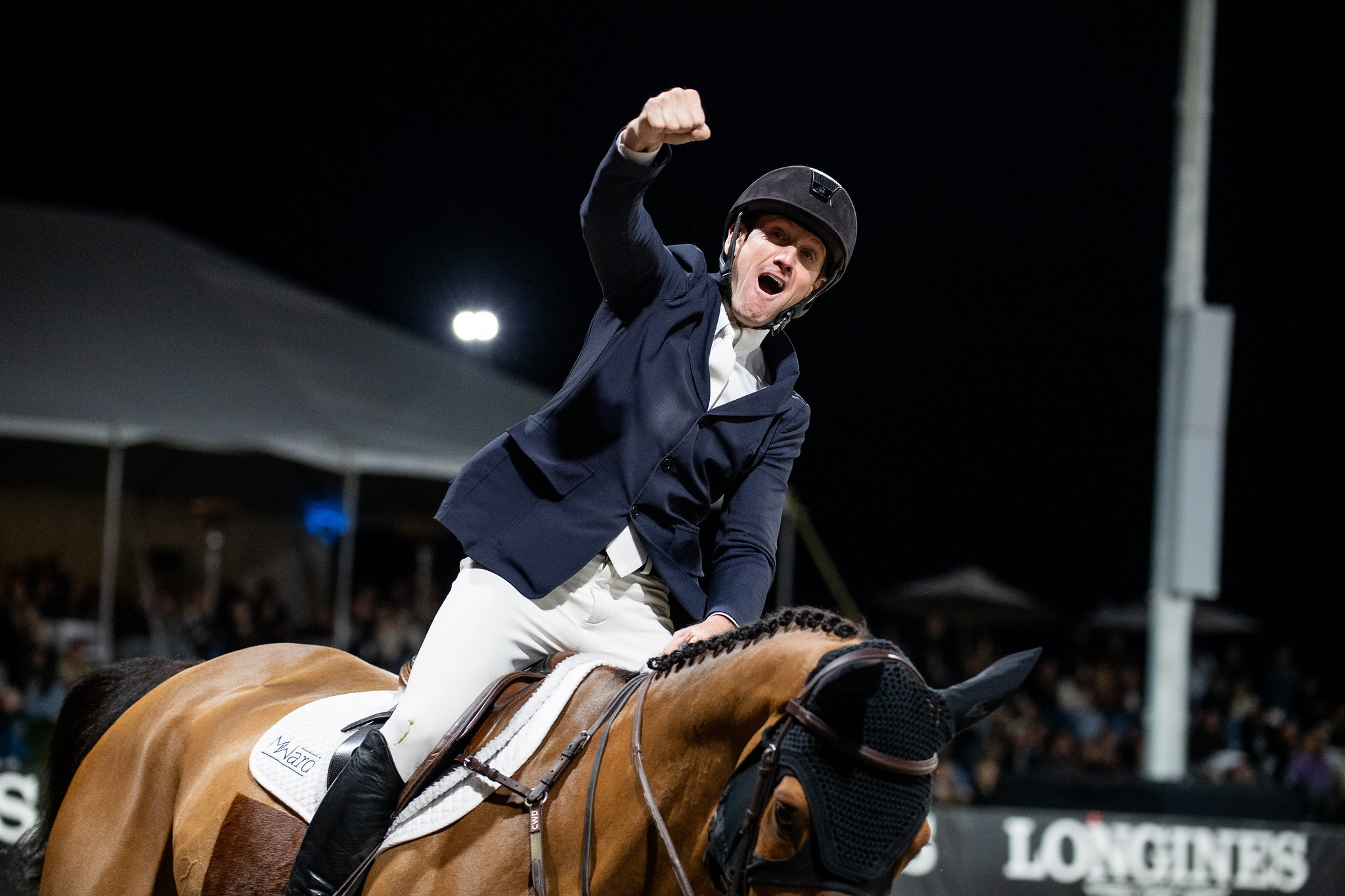When Gideon, a Quarter Horse gelding in his twenties, and his 18 herd mates first arrived at Days End Farm Horse Rescue (DEFHR), Woodbine, Maryland, in January 2021, their situations were desperate.
Animal control and law enforcement officials discovered the horses living in deplorable conditions on insufficient acreage in St. Mary’s County, Maryland. DEFHR was contacted to assist by providing the resources needed to quickly intervene and seize the horses.

Resulting from severe neglect, the horses were riddled with painful skin infections, irritations, and edema. Gideon, in particular, was infested with parasites and severely underweight, scoring a one out of nine on the Henneke Body Condition Scale, which is considered poor or emaciated with no body fat.
“It was clear they were suffering from starvation,” explained Leigha Schrader, DEFHR Assistant Trainer, of the 19 horses. “Within minutes of arriving, some were attempting to eat the walls of their stall.
Until equine neglect or abuse cases are resolved within the county’s judicial system, rescue horses are caught in what DEFHR’s Equine Program Director DeEtte Hillman calls “legal limbo.” This is where the horses are permitted to be rehabilitated but are not legally allowed to enter a training program or be put up for adoption. For DEFHR’s horses, participating in the organization’s training program is a critical step in their journey towards a forever home.
In Aprill 2022, the previous owner of Gideon and his 18 herd mates was convicted of 20 counts of animal cruelty and ordered to forfeit all animals. This released the horses from “legal limbo” and enabled them to move into the training program. Schrader then worked alongside Sara Strauss, DEFHR’s head trainer, to design an individualized plan for each horse.

“Our job as trainers is to help the horse be successful in their future home. Horses that receive training are not only more adoptable, but they are more likely to stay in homes,” said Schrader.
“Finding the right match is extremely important to us, so we want to be able to give the adopter as much information as we can. By thoroughly evaluating and putting each horse through their own individual training program, we have a better idea of the types of careers or homes that will help the horse thrive.”
Strauss and Schrader start by getting to know the horses through a series of ground exercises designed to identify any previous training and evaluate their emotional state. Often, the trauma and negative associations that the horses suffer with pose additional training challenges.
“We always meet the horse where they are. Instead of focusing on their past, we try to focus on the horse we have today and how we can help them have a successful future,” said Schrader.
DEFHR trainers were informed that Gideon had a previous riding career. But rather than make any assumptions, Strauss and Schrader did their due diligence to ensure the gelding would be ready for a rider again. With the support of a volunteer trainer, Gideon participated in several groundwork and lunge sessions, where he showed a positive receptiveness. Strauss then felt encouraged to try him under saddle.
“Typically, we do some rope work with the horses to see how they are with a girth. We then put a surcingle on them, and finally try the saddle. But, when horses like Gideon give you green lights, you go forward to the next step more quickly,” explained Strauss.
Now with just over one month of training under his belt, Gideon enjoys 20 to 30 minutes of walk and trot work, and he especially loves getting out on the trails.

“He was a rock star on the trails! He led most of the trail ride with pricked ears and an eager pace but didn’t mind being in the back either,” said Strauss.
“He wanted to keep going and do more. Any time we turned on a trail headed back toward the trailer, he wanted to slow down and pick another trail to go away from the trailer instead.”
Since arriving at DEFHR, Gideon’s personality has blossomed. He is now the “charmer” in the barn, according to his trainers. They note he’s very polite, nice to work around and is always nickering for treats. Since he is in his twenties, Gideon is now available for adoption as part of DEFHR’s Guardian Program, where DEFHR retains the title of the horse while the adopter provides a lifelong home and tax-deductible care.
DEFHR never rushes the process of rehabilitating and training their horses. Rather, they treat each horse as an individual and focus on realizing their full potential in whatever direction that may be.
“We have such a versatile pool of adopters, so we can allow the horse to have a say in what their future holds. From dressage, hunters, western, trail riding, games, endurance, working equitation, rescue horses can do it all!” said Schrader.


 May 25, 2022
May 25, 2022 









